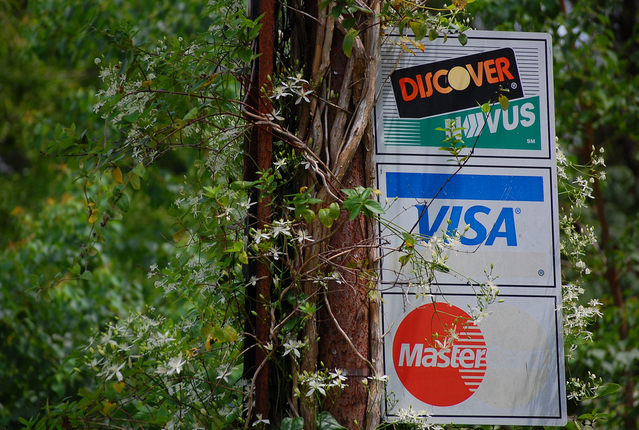Slow Rollout Of Chip-And-PIN Credit Cards May Keep Lines Moving This Holiday Season

(Jeremy P)
The Oct. 1 deadline and the prospect of both consumers and retailers being forced to master a new payment method during the busiest shopping weeks of the year initially had some concerned about annoying bottlenecks at the cashier — people not knowing how to use the cards, cards not working, employees not knowing how to handle errors, etc.
Additionally, the new chip readers — which require that cards be inserted and held for a moment — can take a second or two longer than the simple swipe we’ve all gotten used to. For retailers with millions of customers at thousands of stores, that adds up.
At last week’s Money20/20 conference in Las Vegas, a Walmart payment services exec politely acknowledged that, “There could have been a better time” to roll out new cards and payment processes.
But as the Chicago Tribune notes, not even half of U.S. retailers will have chip card readers installed by the end of 2016. As recently as August, a majority of small business owners said they weren’t even aware of the Oct. 1 deadline.
Retailers (with the exception of gas stations) that haven’t updated their payment systems are now liable — as opposed to the bank or card network — for any fraudulent purchases made using chip-enabled cards. But since most consumers still carry older cards, the stores have not yet had the incentive to invest in the new readers.
One of the few major retailers to complete the change to chip-and-PIN is Target, which was the target of a massive data breach during the 2013 holiday shopping season.
Last month, Target began issuing store-branded cards with the new technology.
Other retailers will undoubtedly be looking at Target over the next two months to see whether or not its new system bogs down checkout lines.
Expect banks and retailers to step up their rollouts of the chip-and-PIN tech in 2016. Hopefully most of us will be in the habit of dipping our cards by this time next year.
Want more consumer news? Visit our parent organization, Consumer Reports, for the latest on scams, recalls, and other consumer issues.

